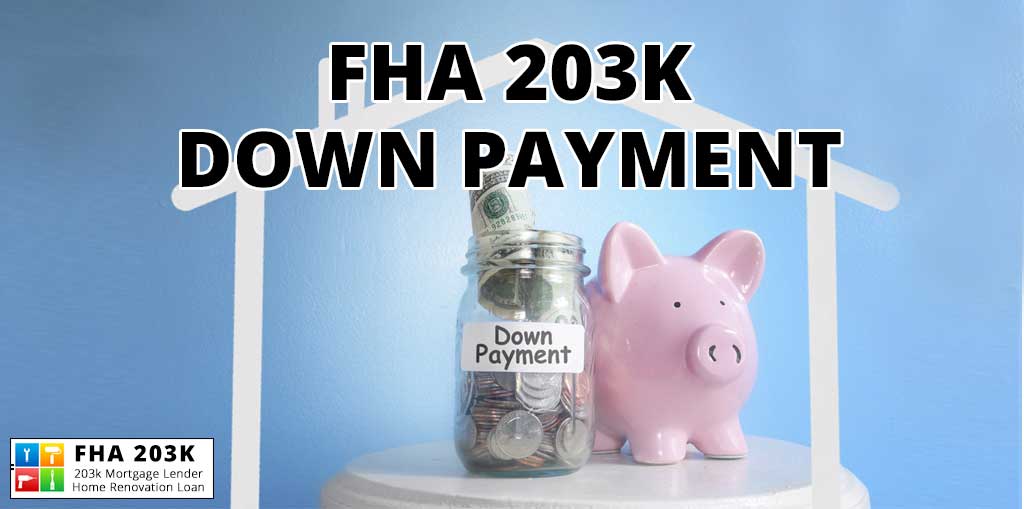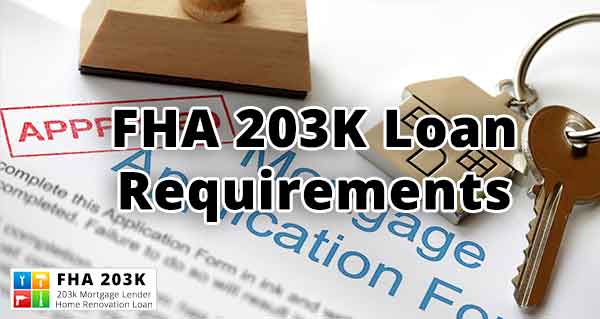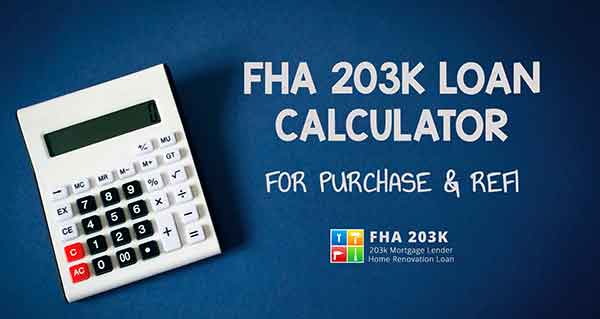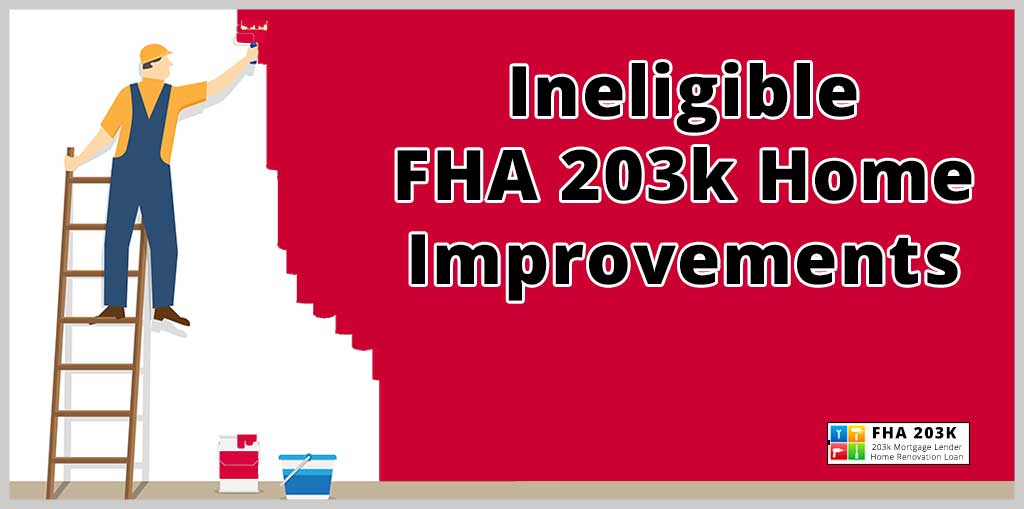
FHA 203(k) Loan: Ineligible and Not Allowed Upgrades
When it comes to financing home improvements, FHA 203(k) loans can be a fantastic resource. However, there are limits on what types of projects they will cover. If you're thinking about adding luxury features or making non-essential upgrades, it’s important to understand which projects may not qualify under this program.
To help you out, we’ve put together a list of items and improvements that fall outside of FHA 203(k) eligibility. Whether it’s high-end finishes, recreational installations, or purely decorative upgrades, this guide will clarify what’s not covered so you can explore other financing options if needed.
Let’s dive in!
***To know what's allowed check out "Eligible FHA 203k Home Improvements" or Speak with an FHA 203k/Renovation Specialist if you have any questions or need clarification.***
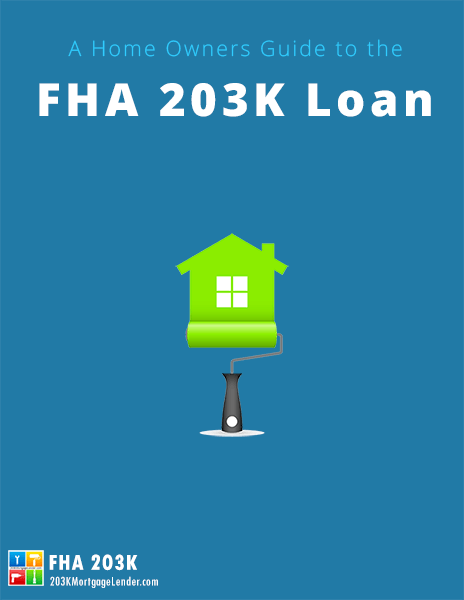
Download Your FHA 203K GUIDE
Get instant answers to your FHA 203K Loan Questions!
Luxury or Non-Essential Improvements
Swimming pools (new installations) – Building a new swimming pool is considered a luxury and is not covered under the FHA 203(k) loan. However, repairs to an existing pool are eligible for financing.
Hot tubs & spas – Installing new hot tubs, spas, or high-end whirlpool bathtubs is classified as a luxury and therefore ineligible.
Outdoor kitchens or BBQ pits – Adding high-end outdoor kitchens, built-in grills, or BBQ pits is not covered by the 203(k) loan.
Tennis courts, basketball courts, or other sports areas – Recreational facilities like tennis courts, basketball courts, or similar sports areas are considered non-essential and not eligible for the loan.
Saunas or steam rooms – Installing saunas or steam rooms is viewed as a luxury improvement and is not eligible for financing.
Luxury landscaping – Elaborate landscaping features, such as water fountains, large decorative structures, or very high-end hardscaping, are not allowed under this loan program.
Gazebos and pergolas – While basic repairs to exterior structures are covered, the addition of luxury outdoor structures like gazebos and pergolas is not eligible.
Solar panels (depending on FHA guidelines) – Solar panels are acceptable but in some cases, solar panels may not be covered, particularly if considered a luxury upgrade rather than an essential energy-saving improvement. Coverage can vary based on local FHA guidelines.
Wine cellars – Building a wine cellar or dedicated wine storage space is considered a luxury and is not covered by the loan.
Luxury flooring materials – Very High-end flooring options can be considered non-essential and may not be eligible for financing.
New additions that don’t increase functionality – Additions that are purely decorative or non-structural improvements, such as cosmetic upgrades, are not covered unless they improve the home’s functionality or livability.
Decorative painting or murals – Custom decorative painting or murals that serve no functional purpose are not eligible for financing.
Patio furniture – Movable items like outdoor furniture, patio sets, or fire pits are not covered by the FHA 203(k) loan.
Very High-end kitchen upgrades – While kitchen repairs and standard upgrades are eligible, luxury or very high-end custom materials could be considered non-essential and are not covered.
Luxury bathroom fixtures – High-end bathroom features or high end designer fixtures that don’t serve a functional necessity are ineligible for the loan.
Additions or Modifications That Don’t Improve Safety or Livability
New construction – The FHA 203(k) loan cannot be used to finance the construction of brand-new homes. To qualify, the property must have been built and in existence for at least one year.
Luxury home expansions – Expanding a home for purely luxury purposes, such as adding an unnecessary wing or room for aesthetic reasons, is not covered. However, functional expansions like adding a bedroom or bathroom are eligible.
Mobile homes – Repairs to mobile homes are generally not covered unless the home is permanently affixed to a foundation and meets FHA guidelines.
Repairs on non-owner-occupied properties – The 203(k) loan is intended for primary residences, so it cannot be used for vacation homes or properties purchased solely for investment purposes. However, mixed-use buildings (where part of the building is residential) may qualify.
Accessory Dwelling Units (ADUs) – May be eligible but adding a separate ADU, such as a guest house or rental unit, is not eligible for financing unless it is attached to the main structure and serves as part of the home’s functionality.
Have Questions? Ready To Get Started?

General Exclusions
Demolition of historical features – If the home is classified as a historic property, removing or altering historically significant features may not be covered. This depends on local FHA and historic preservation guidelines.
Personal property – The FHA 203(k) loan does not cover items that are not attached to the property, such as furniture or personal belongings.
Unapproved contractors – Repairs or renovations completed by contractors who are not approved by your FHA lender may not be eligible for financing under the 203(k) program.
Unsafe or uninhabitable homes – Homes that cannot be made safe or habitable within the FHA 203(k) renovation timelines may not be covered.
Homes zoned commercial – Properties that are zoned for commercial use and cannot legally function as a residential home are ineligible for FHA 203(k) loans.
While FHA 203(k) loans are a fantastic way to fund essential repairs and improvements, it's important to remember that not all upgrades will qualify. Luxury items, non-essential additions, and purely decorative changes generally fall outside the scope of this program. By keeping these exclusions in mind, you can better plan your renovations and explore other options for those high-end, personal touches.
Whether you're aiming to improve functionality or boost your home's value, the FHA 203(k) loan remains a powerful tool—just be sure to stay within its guidelines!
***To know what's allowed check out "Eligible FHA 203k Home Improvements" or Speak with an FHA 203k/Renovation Specialist if you have any questions or need clarification.***

